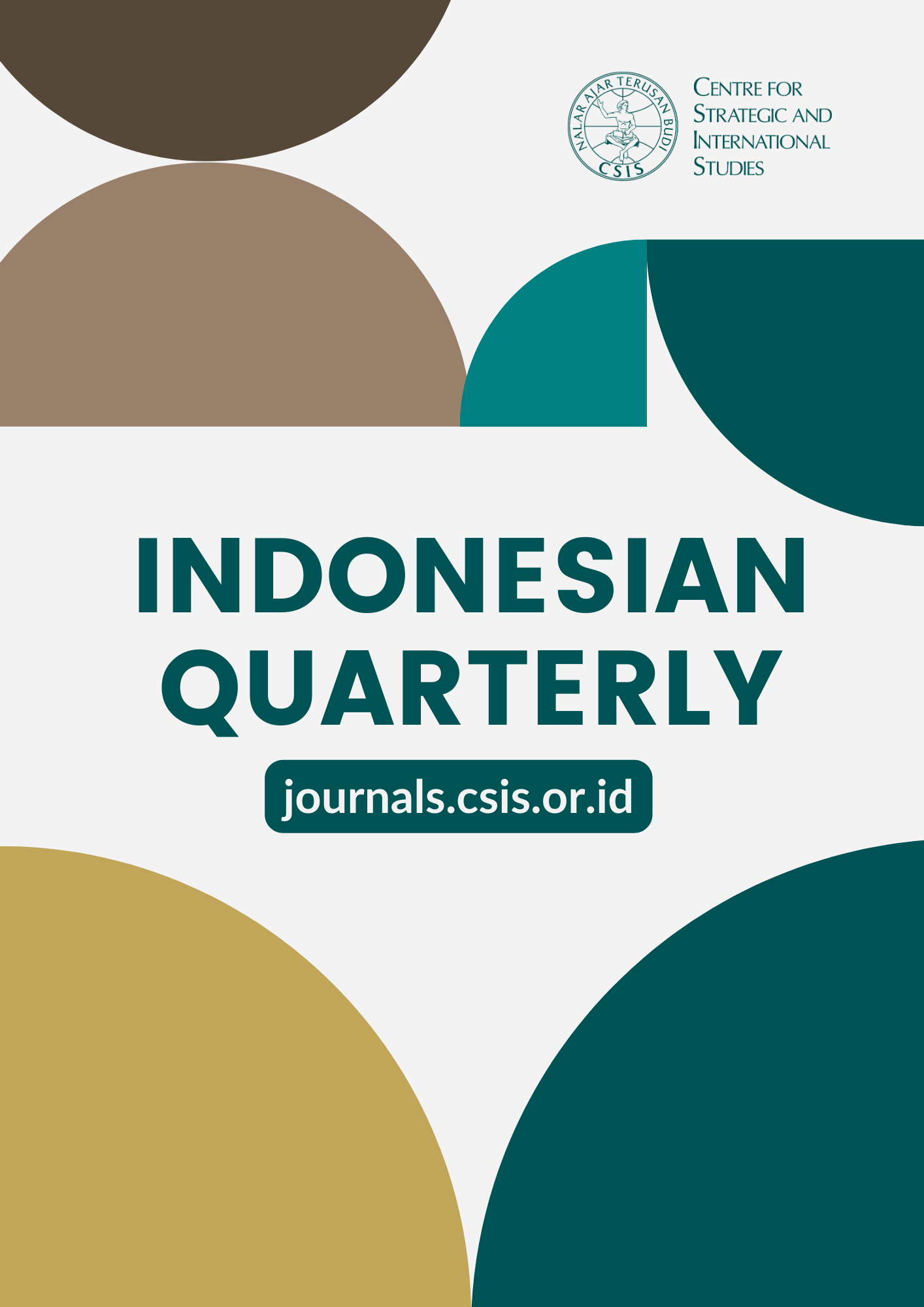Abstract
Economic decarbonization and a just energy transition are crucial policies that Indonesia must pursue to achieve its two important targets for a sustainable Indonesian economy: the Golden Indonesia Vision and Net Zero Emissions. However, the growing trend of unilateral trade policies, including trade restrictions and discriminatory subsidies, complicates its energy transition process. Moreover, global economic growth in 2023 was relatively low and shadowed by inflationary pressures, geopolitical factors, and the threat of climate change. While several international organizations remain optimistic and predict that Indonesia’s economic growth will be above the world’s average, the fate of such a prediction will be down to several important factors. Externally, Indonesia’s growth will likely depend on how it will fare against pressures such as the high global interest rates and China’s economic slowdown. Internally, factors such as Indonesia’s fiscal discipline, willingness to do economic reform—including adjusting fuel subsidies to encourage energy transition and reducing policies that incentivize fossil-based energy, and ability to sustain industrial growth will be very crucial. This article argues that the path forward for Indonesia requires a nuanced, multi-sector strategy that integrates sustainability across governance, along with a smart and balanced trade and foreign policy to solidify Indonesia’s role in the global critical minerals market.
